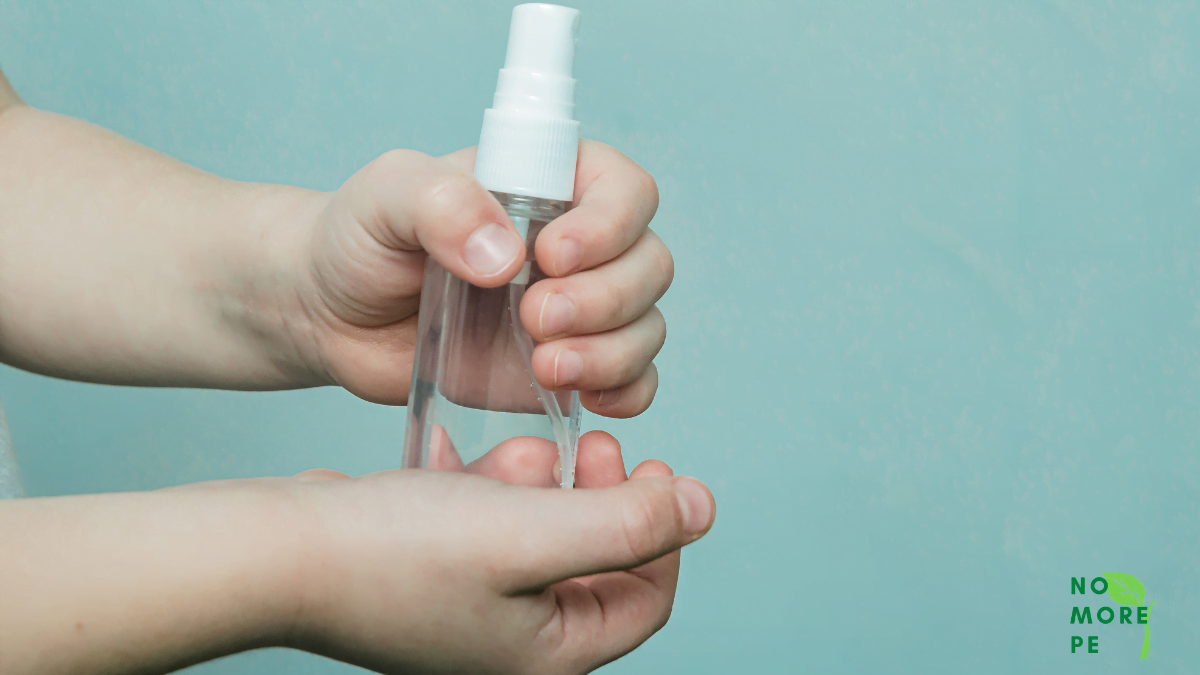Lidocaine and benzocaine are the two local anesthetics available in the form of sprays, creams, and gels. The sprays are used for male genitals to cure premature ejaculation (PE), dentistry work, skin burns and cuts, and other medical reasons.
What’s better between lidocaine vs benzocaine spray?
Lidocaine is stronger, more expensive, and has more severe side effects while benzocaine is mild, cheap, and less harmful.
What’s better between the two?
It depends on why and when you need an anesthetic spray.
This article covers the major differences between lidocaine vs benzocaine spray, their side effects, uses, and when you use benzocaine vs lidocaine spray.
Table of Contents
What is Lidocaine?
Lidocaine (also known as lignocaine) is a local anesthetic used in several medical procedures to numb the skin. It has been available in the market since the 1940s and is used extensively in surgical procedures. It is used to relieve pain, skin itching, eczema, and other medical conditions.
It is a local anesthetic and works by blocking sodium channels that restrict the part of the body from sending signals to the brain about sensation. The connection between the brain and the tissues is disconnected temporarily which leads to loss of sensation on the applied area.
Lidocaine Uses
Lidocaine has a lot of uses in the medical field including:
- Skin issues (e.g., skin scrapes, burns, and insect bites)
- Eczema
- Hemorrhoids
- Genital area discomfort such as anal fissures
- Pain reliever
- Local anesthetic in surgeries and dental use
- Male genital desensitizer sprays for premature ejaculation.
Lidocaine Side Effects
Topical lidocaine has the following common side effects:
- Skin redness, rash, and itching
- Breathing disorder
- Dizziness
- Fever
- Body aches and headache
- Muscle pain
- Nausea and vomiting
- Irregular heartbeat
- Seizure
- Blurred vision
- Methemoglobinemia
- Lung issues.
Lidocaine Spray for Premature Ejaculation
One of the major uses of lidocaine is as a numbing agent for male genital desensitizer sprays where it is used as a treatment for premature ejaculation.
The FDA has approved lidocaine spray with certain guidelines for use as a male genital spray which can be found here.
Lidocaine spray is applied to the penis before sexual intercourse and it reduces sensation leading to a delay in orgasm. The working mechanism is the same where it blocks sodium channels and restricts signals to reach the brain.
What is Benzocaine?
Benzocaine is a topical local anesthetic used as a numbing agent for pain relief and skin issues such as burns and scrapes. It was initially started for use in dentistry and then later it was used for other purposes throughout the medical sector.
Benzocaine works like lidocaine by blocking sodium channels making it hard for the brain to receive and understand signals from the application area.
Benzocaine Uses
Benzocaine has a wide range of uses including:
- Mouth and gum irritation
- Skin burns
- Mouth pain
- Insect bites such as bee stings
- Dental pain
- Hemorrhoids
- Premature ejaculation.
Benzocaine Side Effects
Here are the common benzocaine side effects:
- Skin rash and itching
- Skin tenderness
- Fever
- Headache
- Dizziness
- Heartbeat fluctuation
- Muscle pain
- Methemoglobinemia.
Benzocaine Spray for Premature Ejaculation
Benzocaine spray is used for the treatment of premature ejaculation and it helps men last longer in bed. The FDA has approved benzocaine spray with a maximum concentration of 7.5% for use in male genital desensitizer sprays.
Lidocaine Vs Benzocaine Spray
The major differences between lidocaine and benzocaine spray are:
- Effectiveness
- Safety
- Cost.
1. Effectiveness
Lidocaine spray is stronger than benzocaine spray if the concentration is the same.
For example, 5% lidocaine spray will be stronger than 5% benzocaine spray. Multiple studies analyzed the difference between lidocaine vs benzocaine and found lidocaine to be stronger.
One study reported that 5% lidocaine is equivalent to 20% benzocaine in terms of effectiveness for skin numbness. Lidocaine is more effective and stronger than benzocaine.
2. Safety
Lidocaine spray has more severe side effects while benzocaine spray is safer.
Generally, both lidocaine and benzocaine are safe to use, but when it comes to the severity of the side effects, lidocaine has a strong numbing effect and, therefore, it has severe side effects.
For example, skin rash and itching are common side effects of both lidocaine and benzocaine. But the intensity of the adverse effect won’t be the same for both the anesthetics (it will be higher for lidocaine).
3. Cost
Lidocaine spray is more expensive than benzocaine spray.
For example, Ebanel 5% lidocaine spray is priced at $19.99 and it has 70 ml spray. This comes down to $0.28 per ml. Americaine, on the other hand, offers 20% benzocaine priced at $7.49 and it has 59 ml spray. The price per ml is $0.12.
The price also depends on the brand, but generally, you will find benzocaine much cheaper than lidocaine spray.
When to Use Lidocaine Spray?
Lidocaine spray is ideal when:
- You need a strong local anesthetic for skin, dental, premature ejaculation, or any other medical condition
- Your primary preference is spray strength while you care little about its negative effects
- You aren’t cost-conscious and OK to spend a little extra for local anesthetic.
When to Use Benzocaine Spray?
Benzocaine spray is suitable for you when:
- You need a mild local anesthetic for external use including genitals
- You are interested in a safe spray with minimal side effects
- You are on a budget and need a cheap numbing spray.
FAQs
Does Benzocaine Spray Work?
Yes, benzocaine spray works as a local anesthetic. It is used widely in dentistry, premature ejaculation, and general medicine to numb skin topically. The benzocaine spray is safe to use and has no major side effects.
Why Do Men Use Lidocaine Spray?
Men use lidocaine spray for the treatment of premature ejaculation. Lidocaine spray is used topically on male genitals which reduces sensitivity and helps men last longer in bed. The FDA has approved lidocaine spray for male genitals so it’s used by men for delaying orgasm.
Is Lidocaine Spray Safe for Oral?
It is safe if you and your partner are OK with it and your partner doesn’t mind having her mouth and tongue numbed. If you are interested in having oral sex after applying lidocaine spray to your penis, it is recommended to wipe off or wash your penis to avoid numbing your partner’s mouth.
How Long Does Benzocaine Spray Last?
Benzocaine spray acts immediately in less than a minute and its effect lasts up to 15 minutes depending on its concentration. When you use a benzocaine spray on your penis for delaying ejaculation, it will last up to an hour as the penis is quite sensitive and it takes more time to wear off.
Which is Stronger Benzocaine or Lidocaine?
Lidocaine is stronger than benzocaine. Lidocaine has a stronger numbing effect, has severe side effects, and is considered lethal when used excessively. Benzocaine is mild with less severe side effects.
Final Words
Benzocaine and lidocaine sprays have their ups and downs and both work equally well.
If you are new to local anesthetics and using a spray for the very first time, it is recommended to use benzocaine spray as it is mild and overdose isn’t lethal.
This makes benzocaine spray an ideal non-prescription numbing spray as you are less likely to hurt yourself extensively.
Lidocaine spray should be used when benzocaine spray doesn’t deliver results or it doesn’t work. If you need a stronger numbing effect and benzocaine doesn’t help, switch to low doses of lidocaine spray.
It doesn’t matter whether you need a spray for premature ejaculation, dentistry, skin burn, or any other medical issue, always start with benzocaine spray.
Updated: August 17, 2023

